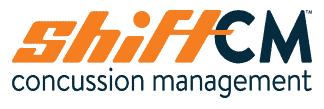Physiotherapy is a branch of rehabilitation that aims to help patients recover and maintain physical abilities through natural means. Physiotherapists use of education, stretching, strengthening, mobilizations, and manipulations to help relieve pain in your body — in the same way that medicine does.
Pain is the #1 reason people seek out rehabilitative care or medication. So how does physiotherapy differ from medicine, when it comes to pain management? The physiotherapy approach uses different modalities to decrease inflammation and promote healing, thus improving symptoms the drug-free way. These modalities may include:
- Acupuncture
- Ultrasound
- Laser
- Interferential current
- Taping
- Hydrotherapy (Heat and Ice)
What Does a Physiotherapist Do?
A physiotherapist looks at the patient as a whole, and not just at the injury site — this allows them to find the root of the problem as opposed to treating the symptoms.
With medication, people may be taking medicine aimed at treating a specific type of problem when the cause is located in a different location entirely. The problem with medicine is that it can create a short term solution to a long term problem.
The Aim of Physiotherapy
A physiotherapist’s goal is to properly diagnose an injury and understand the root of the pain or “pain pathway”. It is important, when recovering from an injury, that the patient learn to improve the overall function of their body in order to promote healing and prevent further injury.
Through this medication-free approach, physiotherapists are able to help treat many common long-term injuries. If you are someone who has been dealing with pain for an extended period of time, it is never too late to seek out a physiotherapy treatment to improve your daily life.
1. Assisted Devices
Physiotherapists also have the ability to properly measure and fit assistive devices. Patients often come in with walkers, canes, crutches, and braces that are mis-measured and do not fit them correctly. It is part of our job to make sure that your assistive devices are being used correctly and that the fit is precise. Pain can be managed with something as simple as changing the height of your walker. These changes can allow you or your loved one to stand correctly and decrease the load going through the back and legs.
2. Arthritis
Arthritis is a common condition that can be alleviated using physiotherapy. At Shift, our physiotherapists will provide catered exercise plans to strengthen areas and decrease arthritis pain in the future. These physiotherapy treatment plans can help minimize the symptoms of arthritis and allow an individual to independently maintain their own abilities.
We believe it is important to give each patient the tools they need to continue their care when not actively receiving physiotherapy. We are here to give patients their independence back – this means allowing them to control their own care, as self-motivated care will increase their likelihood of recovery and help prevent recurring injuries.
At Shift, we strive for excellence. All of our physiotherapists are highly-educated and continually seek out professional development. We are experts in diagnosis and provide individualized education and treatment plans. Our goal is to get you back your independence!
For more information on a physiotherapy treatment plan, contact us at 519-822-2226 today or email us here.


Leave a Reply